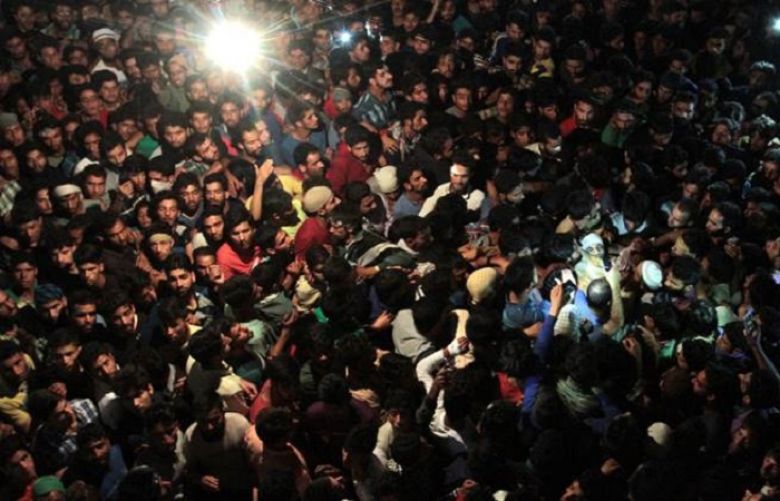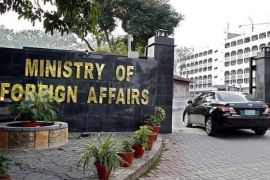A boy hit by pellets fired by Indian troops has succumbed to his injuries after battling for life for more than six months. This has raised the death toll to 120 in the ongoing mass uprising from July 8, 2016 in occupied Kashmir.
The boy, Waseem Ahmad Thoker, was critically injured when Indian troops had fired pellets on peaceful protesters in Mirhama area of Kulgam district in August, last year. He had received over three hundred pellets and succumbed to his injuries last night.
Meanwhile, Indian troops in their fresh act of state terrorism martyred one Kashmiri youth during a siege and search operation in Keri area of Rajouri district, today.
People staged forceful demonstrations on the second consecutive day, today, in Saderkoot Bala area of Bandipora district against the terrorism unleashed by Indian Army personnel. Residents of the area told media that the troops barged into the houses, beat up the inmates and damaged the property during the raids.
On the other hand, the Chairman of All Parties Hurriyet Conference, Syed Ali Gilani, and other Hurriyet leaders including Shabbir Ahmed Shah, Shabbir Ahmad Dar, Muhammad Iqbal Mir, Imtiyaz Ahmad Reshi and Ghulam Nabi War in their statements expressed solidarity with the victims of Kunanposhpora mass rape on the eve of the completion of twenty six years to the tragic incident. They said that this heart-wrenching incident was a living proof of the state terrorism and fascism of India in occupied Kashmir. This incident, they added, depicted the reality that how grave war crimes were committed by Indian forces in the territory. Indian troops had gang-raped around 100 women in Kunanposhpora area of Kupwara district on the intervening night of 23rd February in 1991.
The joint resistance leadership comprising Syed Ali Gilani, Mirwaiz Umar Farooq and Muhammad Yasin Malik has called off the strike on Friday, the 24th February, in view of a festival of Pandit community.
Amnesty reports excessive repression in Kashmir
Repression in occupied Kashmir features prominently in Amnesty International’s 2016-17 report, saying that Indian authorities have used repressive laws to curb freedom of expression and silence critical voices in the territory.
The Amnesty in its report released in London said that Indian forces used unnecessary or excessive force against demonstrators in occupied Kashmir. In the report ‘The State of the World’s Human Rights’, the rights body said that the Indian state is using oppressive laws to silence student activists, academics, journalists and human rights defenders.
The report has highlighted the arrest of Kashmiri human rights defender, Khurram Parvez, and also drawn attention to the ban on English daily Kashmir Reader in October, last year. “In September, Khurram Parvez, a Kashmiri human rights defender, was arrested and detained for over two months on spurious grounds, a day after he was prevented from travelling to a UN Human Rights Council session in Geneva, Switzerland,” it said.
“In October, the government ordered a Srinagar-based newspaper to cease printing and publication on vague grounds,” it said. It also referred to the ban imposed by the puppet authorities on publication of local newspapers for three days in July.
The report maintained that hundreds of people, including children, were placed in administrative detention. “The killing of a leader of the Hizbul Mujahideen armed group in July sparked widespread protests. More than 80 people, mostly protesters, were killed in clashes and thousands injured. At least 14 people were killed and hundreds blinded by security forces’ use of pellet-firing shotguns, which are inherently inaccurate and indiscriminate,” it added.
The report further pointed out that Indian forces used arbitrary or excessive force against demonstrators on several occasions. “In August, Shabir Ahmad Monga, a lecturer, was beaten to death by army soldiers. The Jammu and Kashmir government imposed a curfew which lasted over two months,” it said.
“A suspension on private landline, mobile and internet service providers undermined a range of rights and residents said it left them unable to reach urgent medical assistance,” the report mentioned.
Amnesty, in the report, depicted a grim picture of human rights in occupied Kashmir.







